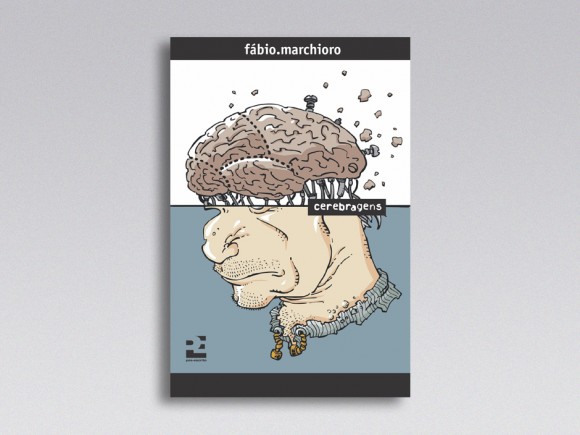Tá certo que só faltam seis meses para terminar a faculdade (e não vejo a hora…), mas tenho uma professora de espanhol que é maravilhosa. Aliás tive muita sorte com todas as minhas professoras de l�nguas estrangeiras na faculdade. O fato é que ela pediu que fizéssemos um telejornal em espanhol.
Acho um saco aquele formato “global” consagrado de telejornal. Então pedimos para fazer um curta-metragem e ela topou.
Roteirizei um conto meu chamado “Se Liberta a água” e vamos filmar no domingo. Mas seria “pensar pequeno” montar toda a estrutura que um filme assim exige (produção, cenário, maquiagem, figurino, equipamento, tempo, tempo…) e “só” fazer o curta para a disciplina de espanhol.
Resultado: vamos fazer todas as cenas duas vezes: uma em espanhol e outra em português. E depois… aos festivais…
O conto está no “leia mais”, logo abaixo.
Filme “bilingüe”
Morreu Gregory Peck
Fiquei muito triste com a notícia. Ficou muito forte na minha memória a imagem dele como o Capitão Ahab, em Moby Dick.
Ei… Greg… você vai fazer falta, cara.
Fonte: IMDB
Oscar®-winning actor Gregory Peck, who just recently topped the American Film Institute’s list of all-time cinematic heroes for his portrayal of Atticus Finch in To Kill a Mockingbird, died overnight of undisclosed causes at his home in Los Angeles; he was 87. A tall actor of quiet grace and dignity, whose rugged good looks belied a talent for inhabiting numerous characters, Peck planned on becoming a doctor before turning to Broadway in 1942. Two years later, he achieved instant stardom with his role as a priest in The Keys of the Kingdom, which garnered the California-born actor his first Academy Award nomination. A string of critically and commercially successful films in the ’40s followed, including Spellbound, The Yearling, Duel in the Sun, Gentleman’s Agreement, and Twelve O’Clock High; the ’50s saw Peck take on lead roles in Captain Horatio Hornblower, Roman Holiday, and Moby Dick, among others. After four Oscar nominations, Peck finally won Best Actor in 1962 for his stirring portrayal of lawyer Atticus Finch in To Kill a Mockingbird, the role that best embodied his screen persona. A champion of liberal causes and president of Academy of Motion Pictures Arts & Sciences during the late ’60s, Peck was also honored with the Jean Hersholt Humanitarian Award in 1967. His later films included The Omen, The Boys from Brazil, and Amazing Grace and Chuck. Peck is survived by his wife, Veronique, and four children.
Warren Ellis e a emoção
Warren Ellis é um dos “meninos terríveis” do mundo das histórias em quadrinhos e graphic novels no mundo. O cara “fala duro” e não perdoa nada nem ninguém. Mas produz como um louco e com uma qualidade invejável. Recebo a coluna dele, Bad Signal, por email mas me parece que peridiocidade é mais para os lados do “quando dá”.
Sempre que “der” para ele, posto a coluna aqui. E, quando “der” para mim, posto um atradução também.
Pessoalmente sou um defensor ferrenho de se produzir textos que, de alguma forma, transmitam, provoquem ou criem emoção. A princípio pode parecer que ele defende um ponto de vista diferente, mas no final prevalece o mesmo entendimento.
Sorry, está em inglês. Sem tempo ou cabeça para traduzir.
WARREN ELLIS
There’s something in the word “emotion” in terms of creativity that says “mediocrity” to me.
I was re-watching the feature on the making of GODFATHER 3 from the DVD set the other day, which is a heartbreaking document. What was in Francis Ford Coppola is seen to have died, and only he and his well-trained cadre of sycophants don’t see it.
He talks about not wanting to go back the third time because he felt he’d “mined the emotional material of that family.” In terms of story development, he rails at his team, “How do we say it emotionally?” “If we can do it in an emotional way,” he jabbers on the phone in a tiny room, “we can kick it right over.”
One of the first script meetings is filmed. Diane Keaton, sharp as a switchblade, has fixed on something. “How does it END?” Coppola is at the head of the table. “Well, I have many things to resolve.” “Yeah, but how does it END?” Cut.
The long, horrible film proves Keaton right and makes Coppola look like an idiot. By the time an intermission comes in the interminable opera scene that forms the last dragging act, the Mafia are talking about saving people in jeopardy like they’re suddenly the fucking Thunderbirds. Pacino emotes over people, corpses, houses and bits of furniture like the lazy old trouper he was in that phase of his career. Andy Garcia exults in the scenes of violence and looks
terrified the rest of the time. Keaton knew her part was fucked from the start and acts like it. It’s an awful thing to sit through, but it’s a weirdly rewarding act, because it drives something home about writing.
There was a comics writer, no longer working, who used to declaim to everyone that Stories Are Structure. He was and is wrong. Stories grow from your chosen rootstock, which is not the same thing. You can’t just shoehorn in “emotion.” If your characters don’t breathe, it’s not because you haven’t stopped to consult a commitee about how to “say it emotionally.” It’s because
you can’t write anymore. If there is no “emotional material,” it’s because your characters are dead and you’ve got nothing to say.
In comics, there’s always talk of “characterisation.” It’s a bullshit term. It means “writing.” Some of the best writers make the reader infer character by what their figures don’t say and don’t do. Decide who they are and what they
do, and they will “say it emotionally” as a natural consequence of the writing. Sometimes they’ll surprise the reader. Sometimes they’ll surprise you. But it will be authentic.
Premissa Falsa
PREVISÃO DE INVERNO
Com a aproximação do inverno os índios foram ao cacique perguntar:
– Chefe, será que teremos um inverno rigoroso ou será ameno?
O chefe, vivendo nos tempos modernos, não tinha aprendido os segredos de
meteorologia como seus ancestrais. Mas claro, não podia mostrar insegurança
ou dúvida. Por algum tempo olhou para o céu, estendeu as mãos para sentir
os ventos e em tom sereno e firme disse:
– Teremos um inverno muito forte… é bom ir colhendo muita lenha!
No dia seguinte, preocupado com o chute, foi ao telefone e ligou para o Serviço de Metereologia e ouviu a resposta:
– Sim, o inverno deste ano será muito frio.
Sentindo-se mais seguro, dirigiu-se a seu povo novamente:
– É melhor recolhermos muita lenha… teremos um inverno rigoroso!
Dois dias depois, preocupado, ligou novamente para o Serviço de Metereologia e ouviu a confirmação:
– Sim. Este ano o inverno será rigoroso!
Voltou ao povo e disse:
– Teremos um inverno muito rigoroso. Recolham todo pedaço de lenha que
encontrarem, teremos que aproveitar os gravetos também.
Uma semana depois, ainda não satisfeito, ligou para novamente outra vez:
– Tem certeza de que teremos um inverno tão forte?
– Sim. Este ano teremos um frio intenso, nós temos certeza.
– Como tem tanta certeza?
– É que os índios estão recolhendo lenha prá cacete este ano…


